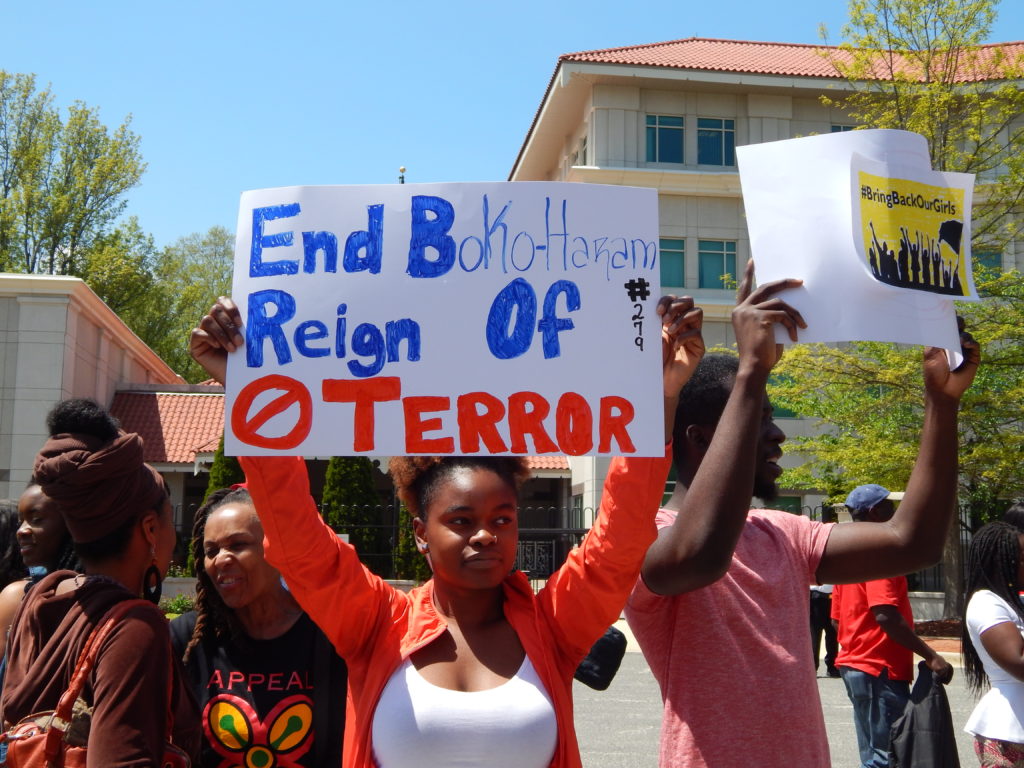Yesterday, my colleague Will Higgins detailed the pressing reality of religious discrimination and violence in Nigeria—a situation so precarious that one of the panelists from the June 9th event forthrightly described the country as being “on the verge of shattering into pieces.” Take a moment, then, and read Will’s helpful piece here, and if you are so compelled, the 21st Century Wilberforce Initiative report in its entirety here.
Now, upon reading of the immense conflict, one might readily concede to feelings of dismay and despair. However, at the conclusion of the hearing on Thursday, I, though still struck by a certain degree of grief and frustration, found my sense of horror to be healthily, if ever so slightly, subdued by an inspiration of confidence and hope. While I surely do not want to appear unduly optimistic, I do want to suggest that there are perhaps certain restorative measures to be taken by Nigerian politicians and sub-state actors, measures that can help ameliorate the social fragmentation currently afflicting the country.
The panelists put forth a number of remedial suggestions – some economic, some judicial, some geopolitical in nature – but none were so resoundingly incited as that of education. While, yes, strengthening local institutions, fortifying legal structures, and endeavoring to make state and local politics a cooperative, interfaith affair are good and necessary, these amendatory efforts will consistently be undermined unless the educational edifices of Nigeria are not significantly bolstered.
With the country in a state of formidable upheaval – what with over two million internally displaced persons (IDP), and two of the top four most deadly terrorist organizations in the world alive and kicking – Nigeria has seen a near total collapse of educational standards. What is more, the collapse of educational structures is only being further aggravated and perpetuated by an insidious and pervading educational malaise—what Becky Gadzama, co-founder of the Education Must Continue Initiative (EMCI), describes as a “general apathy about education.” This breakdown of the school system, paired with an all-too-commonplace ambivalence concerning education, then, has exacerbated the already extant ethno-religious splintering in Nigeria.
So how then would advancements in education actually improve Nigeria’s baleful condition? Ms. Gadzama was quite helpful in this regard. EMCI was founded in 2014 in response to the Boko Haram insurgency of northeast Nigeria and the concomitant collapse of educational standards and resources in the region. The organization is purposed toward educating IDP children, with an emphasis – more or less – on educating young women. Acutely galvanized by the 2014 Boko Haram abduction of nearly 300 girls, Ms. Gadzama finds that chief among EMCI’s mission is to be an annulling force against Boko Haram’s contemptible message: “Girls are not to go to school; girls are [only] for men.”
Girls are not only for men; they have rights, too, she insists! Young girls, just like young boys, have the right to education, and the right – if not the duty – to develop (at the least) a trade, a skill, etc. so as to contribute meaningfully to their given communities. Placing children in schools, schools that are robust and efficacious, is the foremost way to mend Nigeria’s disintegrated social fabric. For it would strengthen civil society by producing young citizens capable of offering a diversity of goods and services (read: job creation), forging an environment conducive to interfaith cooperation, and inculcating values of tolerance and civility. In an area riven by ethno-religious discrimination, hatred, and violence, Nigeria needs to help young people, especially former abductees, “trade [their] guns for pencils.”
There are other extremely critical measures to be taken in Nigeria to ensure a vibrant pluralist society. U.S. Ambassador for Religious Freedom David Saperstein suggests that some of these include: government holding perpetrators of violence accountable; trust being built up between the government and the citizenry; religious freedom regulations being enacted and enforced; and the abolition of Sharia law in the north. However, these measures must be undergirded by education. For it is only through education, Ms. Gadzama reminds us, that “hearts and minds are opened.”
No comments yet




